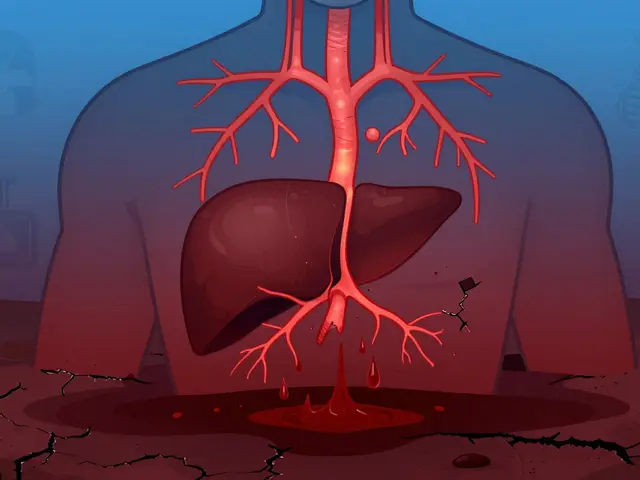How to Check Supplement Interactions in Drug Databases: A Step-by-Step Guide
January 6 2026Carcinoma Treatment: Options, Strategies, and Practical Guidance
When dealing with carcinoma treatment, the set of medical approaches used to control or eliminate cancerous tumors. Also known as cancer therapy, it spans a wide range of interventions aimed at improving survival and quality of life. A cornerstone of effective chemotherapy, the use of drug regimens to kill rapidly dividing cancer cells is understanding tumor biology, while immunotherapy, treatments that boost the body’s own immune response against cancer adds a modern layer of precision. Together, these approaches define the modern landscape of carcinoma care.
First, surgery often serves as the initial move when the tumor is localized and resectable. Removing the mass can provide immediate relief and, in many cases, a cure. Yet surgery seldom works alone; it is usually followed by adjuvant therapies that mop up microscopic disease. Radiation therapy, a targeted form of high‑energy waves, can shrink tumors before surgery or eradicate leftovers afterward. The combination of surgery, radiation, and systemic therapies creates a multi‑modal attack that improves outcomes across many carcinoma types.
Systemic drug treatment remains a pillar of carcinoma management. Standard chemotherapy regimens—like taxanes, platinum compounds, or anthracyclines—target rapidly dividing cells but also affect healthy tissue, leading to side effects we’ll discuss later. Advances in targeted therapy have introduced drugs that home in on specific molecular abnormalities, such as HER2 blockers in breast carcinoma or EGFR inhibitors in lung carcinoma. These agents can be less toxic because they spare non‑cancerous cells, yet they require precise diagnostic tests to match the right drug to the right tumor.
Immunotherapy has reshaped expectations for many hard‑to‑treat carcinomas. Checkpoint inhibitors, such as PD‑1 or CTLA‑4 blockers, release the brakes on immune cells, allowing them to recognize and destroy cancer. CAR‑T cell therapy takes the concept further by engineering a patient’s own T cells to target tumor antigens. While not every carcinoma responds, growing evidence shows durable responses in melanoma, lung, and certain gastrointestinal cancers. Combining immunotherapy with chemotherapy or radiation often amplifies the immune signal, an emerging strategy seen in several clinical trials.
Personalized medicine ties all these threads together. Molecular profiling, next‑generation sequencing, and biomarker testing help clinicians decide which modality—or combination—will likely work best. Clinical trials give patients access to cutting‑edge treatments, and enrollment decisions depend on tumor stage, genetics, and prior therapy history. Understanding the trial landscape is crucial; many trials now focus on combining immunotherapy with targeted agents or testing novel radiation dosing schedules.
Side‑effect management is a practical must‑have for anyone undergoing carcinoma treatment. Nausea, fatigue, and neuropathy are common with chemotherapy, while radiation can cause skin irritation or organ‑specific toxicity. Supportive medications—like anti‑emetics, pain relievers, and growth‑factor injections—help keep patients on track. In our collection you’ll also find guides on buying affordable generic options for supportive drugs, such as cheap generic metformin for diabetes‑related complications or inexpensive antihistamines for allergy‑linked symptoms during treatment.
Now that you have a clear picture of how surgery, radiation, chemotherapy, immunotherapy, and targeted drugs intertwine, you’re ready to explore detailed articles that dive deeper into each area. Below you’ll find practical guides, safety tips, and the latest research that can help you or a loved one navigate carcinoma treatment with confidence.
 8 Oct
8 Oct
How Palliative Care Improves Carcinoma Treatment Outcomes
Explore how early palliative care enhances carcinoma treatment, improves quality of life, and supports patients through symptom control, emotional support, and advance care planning.
Read More...




